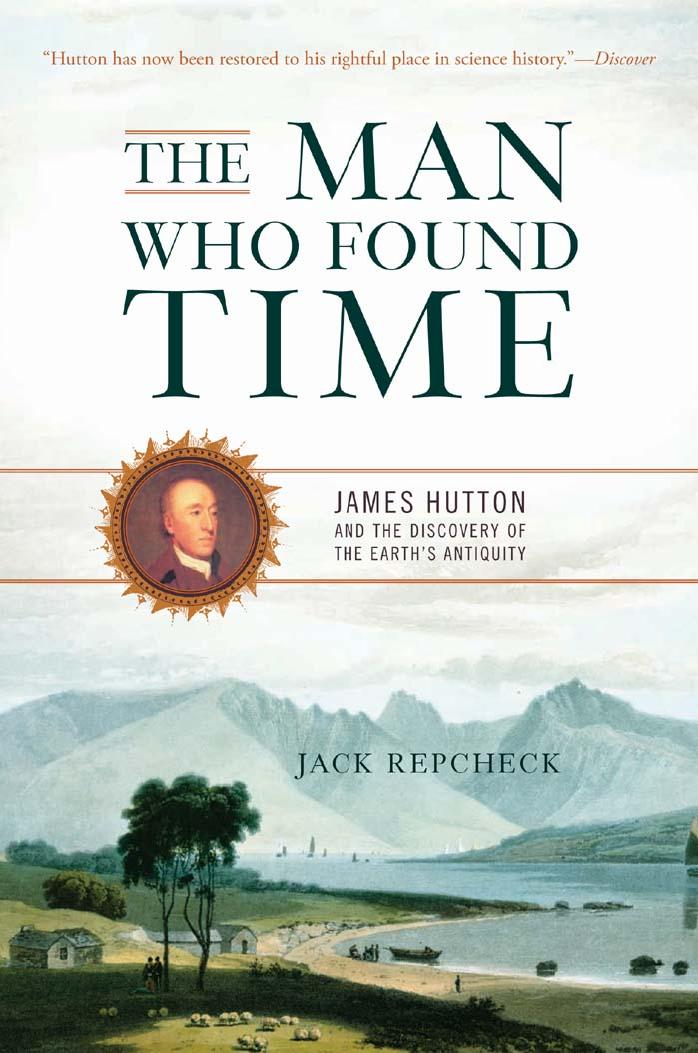The Man Who Found Time by Jack Repcheck

Author:Jack Repcheck
Language: eng
Format: epub, pdf
Publisher: Basic Books
Published: 2010-12-02T05:00:00+00:00
THE SCOTTISH ENLIGHTENMENT was an intellectual movement that complemented the Whig regime in the city. It celebrated progressive ideas and witnessed significant contributions in fields as diverse as geology, mineralogy, chemistry, medicine, political economy, history, philosophy, architecture, poetry, and portraiture. If there was a unifying theme or philosophy, it was that the “improvement” of the natural world—by means of understanding and controlling it—was fundamentally good and proper. Related to this was the idea that Newton-inspired natural laws could and should be applied to many phenomena, such as human nature and human history. Immanuel Kant’s characterization for the Enlightenment on the Continent also described the Scottish version: “Dare to know.”
A group of native Scots, nearly all of them educated at Scottish universities and most living within blocks of one another in Edinburgh, along with regular visitors from Glasgow and other nearby towns, made up the cast of enlightened scholars. They were primarily university professors, ministers, and lawyers/ solicitors; as one historian calls them, the “teachers, preachers, and pleaders” of the city. The Scottish Enlightenment spanned two generations: the more influential group was born before 1740, and the second wave was the following generation.
A short list of the most active participants includes Adam Ferguson (1723-1816), considered the founder of sociology because of his book Essay on the History of Civil Society (1768); William Robertson (1721-1793), one of the founders of modern historical research and noted for his History of Scotland (1759); William Smellie (1740-1795), the printer and publisher who compiled and edited the first edition of The Encyclopedia Britannica (published in installments from 1768 to 1771); William Cullen (1710-1790), one of the leading early medical researchers and chemists of the time; Sir John Clerk of Eldin (1728-1812), who became the Clausewitz of naval warfare because of his book An Essay on Naval Tactics (1790-1797); Robert Adam (1728-1792), the influential architect; Robert Burns (1759-1796), the great poet; and Sir Walter Scott (1771-1832), who “invented” the historical novel and who came of age during this vibrant period. Onto the list should also be added two men who never lived in Edinburgh but who visited and maintained an active correspondence with the scholars there: Ben Franklin (1706-1790), the statesman and talented polymath who discovered electricity; and Erasmus Darwin (1731-1802), Charles Darwin’s grandfather and the author of a precursor theory of evolution. John Playfair (1748-1819) and James Hall (1761-1832) were key figures as well.
But beyond this impressive group, five individuals made contributions so monumental that they still reverberate to this day, over 200 years after their deaths. David Hume developed and published his influential philosophy of human nature, which argued for the primacy of man’s passions. Adam Smith (1723- 1790), one of Hume’s best friends, used parts of Hume’s philosophy while writing The Wealth of Nations, the book that started the field of economics and allowed governments to finally understand the effects of laws on their nation’s economy. Joseph Black (1728-1799) isolated carbon dioxide, thus discovering that the atmosphere was made up of a mix of gases, and inspired Antoine Lavoisier, the founder of modern chemistry.
Download
This site does not store any files on its server. We only index and link to content provided by other sites. Please contact the content providers to delete copyright contents if any and email us, we'll remove relevant links or contents immediately.
Man-made Catastrophes and Risk Information Concealment by Dmitry Chernov & Didier Sornette(5982)
The Revenge of Geography: What the Map Tells Us About Coming Conflicts and the Battle Against Fate by Kaplan Robert D(4063)
Zero Waste Home by Bea Johnson(3823)
COSMOS by Carl Sagan(3611)
Good by S. Walden(3538)
In a Sunburned Country by Bill Bryson(3526)
The Fate of Rome: Climate, Disease, and the End of an Empire (The Princeton History of the Ancient World) by Kyle Harper(3048)
A Wilder Time by William E. Glassley(2849)
Camino Island by John Grisham(2788)
Organic Mushroom Farming and Mycoremediation by Tradd Cotter(2681)
The Ogre by Doug Scott(2671)
Human Dynamics Research in Smart and Connected Communities by Shih-Lung Shaw & Daniel Sui(2490)
Energy Myths and Realities by Vaclav Smil(2478)
The Traveler's Gift by Andy Andrews(2445)
9781803241661-PYTHON FOR ARCGIS PRO by Unknown(2356)
Inside the Middle East by Avi Melamed(2346)
Birds of New Guinea by Pratt Thane K.; Beehler Bruce M.; Anderton John C(2245)
A History of Warfare by John Keegan(2228)
And the Band Played On by Randy Shilts(2180)
